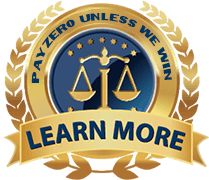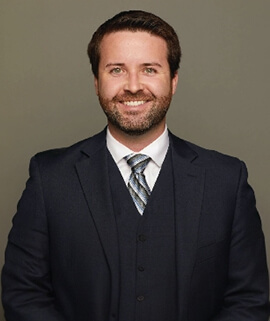DUI FAQ’s – Common Drunk Driving Arrest Legal Questions
1. What is a DUI?
DUI stands for driving a motorized vehicle while under the influence. States and jurisdictions in the United States may have different terms for Driving Under the Influence. Some of these are listed below.- DUIL: Driving under the influence of liquor
- DWI: Driving while intoxicated
- OWI: Operating a motor vehicle while intoxicated
- OUI: Operating while intoxicated
- OMVI: Operating a motor vehicle while intoxicated
2. What does the terms Under the Influence mean? What is its significance in my case?
DUI is attested to when a defendant blood alcohol level is over the legal limit. There are different legal limits based on the jurisdiction or state where one resides. For examples California has a legal blood alcohol limit of .08%. Other state may be less restrictive and have a blood alcohol level limit of .01%. There are different test that may be used to ascertain a defendant legal blood alcohol level. Some of those tests may not be accurate.3. What is the difference between drunk driving drunken driving and DUI, do I need a drunk driving lawyer or a DUI lawyer?
It is important that one pays attention to the difference between the two terms. Drunk driving is a non legal term. Under most jurisdictions in the united state the terms drunk driving is no longer used. Instead it has been replaced with DUI or DWI. Under a DUI arrest, DUI charge and subsequent DUI conviction, the police and later prosecution do not need to show that you were drunk at the time of driving. But simply that the person charged had enough alcohol in his or her system to be possibly effected by it when he was operating the vehicle. So it should be understood that one does not have to be drunk to be arrested for DUI. A showing of slight alteration to the senses of the person can and have in many instances been enough to charge and convict a person of DUI. Thus one a DUI attorney, Drunk driving lawyer work in the same capacity and are basically performing the same legal function for the defendant.4. What is a field Sobriety test?
Field Sobriety tests of FST’s are test that are given by the police officer that has stopped a person for suspicion of DUI. The driver is given certain task to perform in order to show whether or not he was driving under the influence of an intoxicating agent. Some of the tests that are performed may include- Touch your nose
- Count or recite the alphabet backwards
- Stand on one foot
- Close eyes and touch your fingers
- Walk a straight line
5. What is a Blood Alcohol Test and what are my rights in refusing to take them?
Here it is important that every driver knows his or her DUI legal rights under the law. DUI defense lawyers often emphasize this to their clients. There are three different types of Blood Alcohol Tests that are commonly used to measure a person’s blood alcohol level.- Blood test
- Breath test
- Urine test
6. What is the Implied Consent Law in California, and what does it mean in my case?
California’s Implied Consent Law states that a person that operates a motor vehicle is deemed to have impliedly consented to a chemical blood, urine, or breath test for blood alcohol levels. The law enforcement agency must advise every suspect that has been stopped on suspicion of DUI that a failure to submit to the test will be considered for an additional charge with additional fines and punishments. Remember in California you have a choice of which test you want to take, Blood, Urine, or Breath. However, the failure to submit to a test will result in the following penalties in California.- A fine
- Mandatory prison sentence if the person is convicted of the underlying DUI offense
- Suspension of a person drivers license for one years, [note: this can be two years if the refusal take place within 10 years of a prior conviction and or refusal; or three years if it take place within 10 years of two prior incidences.
7. What should I do or say if I am involved in a DUI accident?
Here are some helpful tips for a person that has been involved in a DUI related accident and want to protect his/her rights under the law.- If you think anyone is hurt in any way call for emergency medical help.
- If required by state law, file a report in the accident
- Avoid making ANY oral or written statements
- You DO NOT have to speak with the police an in most instances should not do so
- Do not say any self incriminating words, even “I am sorry for what happened” can come back to hurt you.
- After the accident write down their version of the story, note and write the date of the writing an notated the writing as “Confidential Information Under Attorney Client Privilege” : note DO NOT show this document to anyone else but your attorney.
- Contact an attorney soon after the accident so that you can protect your rights.
9. What is the punishment sentencing for DUI conviction?
Sentences can vary greatly based on many factors such as, prior offenses of Drunk driving, injuries, accident and damages that result from your DUI. Usually sentences involved heavy fines and some time in jail. Other outcomes which can and do occur as a result of DUI convictions may include- Losing your driver’s license
- Mandatory drug or alcohol treatment program
- Rise in car insurance
- Forced breath tests to be able to turn on a persons car
- Community Service
10. What if I am a Repeat offender? What is my punishment?
Most likely repeat offender are sentence to much longer jail time and more serious consequences then first time offenders. An example of possible rise in sentencing in the guidelines is California Vehicle Code Section 23154.- First Offense: 48 hours up to 6 months in jail.
- Second Offense: 48 hours to 1 year in jail.
- Third Offense: 4 months to 1 year in jail.
- Fourth Offense: 6 months to 1 year in jail.
11. Can I fight my DUI conviction in court?
In most instance YES. It depends of court on several factor regarding your case. How you were stopped. The manner of questioning by the police to determine your sobriety. The type of tests that are use to determine your blood alcohol level, the procedures that the police took to ensure the protection of your legal duties. DUI cases often involve complex legal issues that involve a unique knowledge base. Skilled Drunk Driving defense law firms and DUI defense lawyers can in many instances get you an acquittal or reduce the charge as a result of a settlement with the prosecution. If you have any question regarding your DUI arrest or have been involved in a DUI accident, and require a DUI attorney or DUI accident lawyer contact us for a free consultation.Los Angeles DUI Attorney | California DUI Defense Attorney
DUI (Driving Under the Influence) frequently asked questions: Guide to Los Angeles DUI Attorneys and Drunk Driving Laws from Downtown LA LAW’s comprehensive resource of California DUI laws, California criminal punishment for DUI’s, information on Los Angele Police department field sobriety and breathalyzer tests, and how California dui defense lawyers maybe able help you.Over $1 BILLION Recovered
for Our Clients
By submitting this form, you agree to receive telephone calls and text messages at anytime, which include hours outside of business hours (8:00 am PST – 9:00 pm PST). This is so that we may reach you as soon as possible in order to consult on your potential case.
Featured Lawyers
Car accident Types
– Head-on collision
– Hit and Run accident
– Intersection accident
– Low impact collision
– 3 Car accident
– Rear end collision
– Rollover accident
– Single car accidents
– T-bone accident
– Sideswipe accident
– Side impact accident
– Distracted driving
– Drunk driving
– Uber/Lyft accident
– Uninsured motorist accident
– Highway accident
– Unsafe lane change accident
– Causes of car accidents
– Taxi cab accident
– Drowsy driving
– Unlicensed driver accident
– Elderly driver accident
– Speeding accident
– Parking Gate Arm Attorney
– Parking lot control arm injuries
– Pedestrians Hit By Cars In Parking Lot
– Parking Structure Car Crash Lawsuit
– Defective Product claims



















